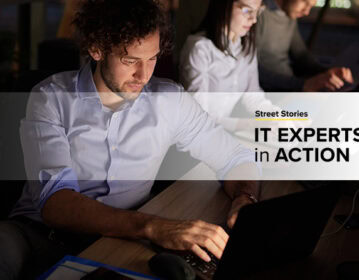
The manufacturing industry is experiencing the pain of shifting trade policies and economic uncertainty. During a time when global systems are deeply intertwined, sudden tariff hikes are disrupting supply chains, increasing production costs and forcing companies to rethink sourcing strategies. Supplier delivery times have hit a two-year low due to companies reducing or halting shipments. Fluctuating demand, inflationary pressures and geopolitical tensions add to the layers of complexity.
Despite the challenges, there’s a silver lining — these disruptions are also forcing companies to rethink how they design, source and produce goods, leading to unexpected advancements in efficiency, sustainability and localization strategies.
Uncertainty can be the catalyst for invention
Uncertainty doesn’t have to lead to stagnation. Some manufacturers are using it as a catalyst for reinvention, leveraging data-driven insights to drive efficiencies, strengthen partnerships and lead industry transformation.
These fresh strategies help companies build resilience and reduce costs to thrive in a rapidly evolving global landscape. Here are three examples:
- Forced nearshoring equals faster innovation: Rising tariffs and an unreliable global supply chain push manufacturers to shift production closer to home. But this isn’t just about geography — it’s accelerating advanced manufacturing adoption (AI, robotics, additive manufacturing) to offset labor costs with efficiency gains.
- Tariff engineering: Some companies are tweaking product designs to steer away from tariffs — altering materials, assembly locations or component sourcing to minimize costs. This has led to new material innovation and cross-industry collaboration.
- Risk as a strategy: Traditionally, supply chain stability is prized, but now some companies are strategically incorporating volatility into procurement and inventory models to gain competitive pricing advantages. Instead of locking in long-term contracts, they adopt a flexible sourcing approach that lets them pivot based on currency fluctuations, tariff changes and material availability.
Innovate now, not later
In times of market uncertainty, manufacturers who lean in and are bold in their strategies are often the ones that emerge stronger and are better prepared for the future. Taking the long route to potential innovation through years of cloud migrations or replatforming can lead to an even greater decrease in profit margins and loss of market share. Manufacturers need to act quickly to adopt innovative technologies and processes that can improve efficiency and profitability.
The key is to modernize operations without disrupting existing systems and the business as a whole. A composable ERP strategy allows companies to maintain the stability of their core ERP systems while seamlessly integrating new technologies, like AI. These companies don’t need to wait years for an entire ERP overhaul. Instead, they incrementally layer innovative solutions to enhance automation, predictive analytics and decision-making capabilities.
AI-powered tools can improve demand forecasting, optimize production scheduling, and streamline supply chain management, driving efficiency without compromising system integrity or adding risk. This modular approach ensures adaptability in an evolving market, allowing manufacturers to stay competitive while scaling technology adoption at their own pace.
Self-fund innovation
Apsen Farmacêutica, a Brazilian pharmaceutical manufacturer, is an excellent example of an organization that is innovating and being bold during market volatility. Even in such a heavily regulated space, they are withstanding disruptions and thriving. Apsen Farmacêutica partnered with Rimini Street and ServiceNow, Inc. to adopt a flexible, modular ERP approach. The CIO of Apsen led the initiative, driving home the importance of removing dependencies on vendors and systems, starting with its SAP ECC 6. Instead of taking on the cost, disruption and risk of migrating to SAP S/4HANA, Apsen chose to reimagine their existing system to become an innovation platform.
Partnering with Rimini Street and ServiceNow enabled Apsen to self-fund its innovation efforts by reallocating savings from avoided upgrades and migrations. A ServiceNow® layer was deployed over and across their existing enterprise software platforms, connecting all required systems and teams. Apsen integrated AI to bring embedded intelligence to workflows, enabling real-time analysis of operations.
Rimini Street enabled Apsen to extend the life of their existing software systems without feeling pressured to pay costly upgrades pushed by vendors. This kind of independence is necessary in the quest for stability in a volatile market. And the results were substantial, including automating 70% of processes that previously required heavy manual intervention, reducing the development cycle for new processes from months to weeks and increasing speed and efficiency while reducing operational costs.
Thriving amid volatility
While US tariffs and market volatility create undeniable challenges, they also create an opportunity for manufacturers to rethink their approach to enterprise software and innovation. By freeing themselves from vendor lock-in, optimizing their current IT budgets and prioritizing innovation, manufacturers can become more resilient, simplify operations and secure their future in a competitive marketplace.
Rimini Street helps organizations self-fund and accelerate innovation while increasing returns on existing software and protecting future software investments. Learn more about how we help manufacturers achieve transformation without disruption.







